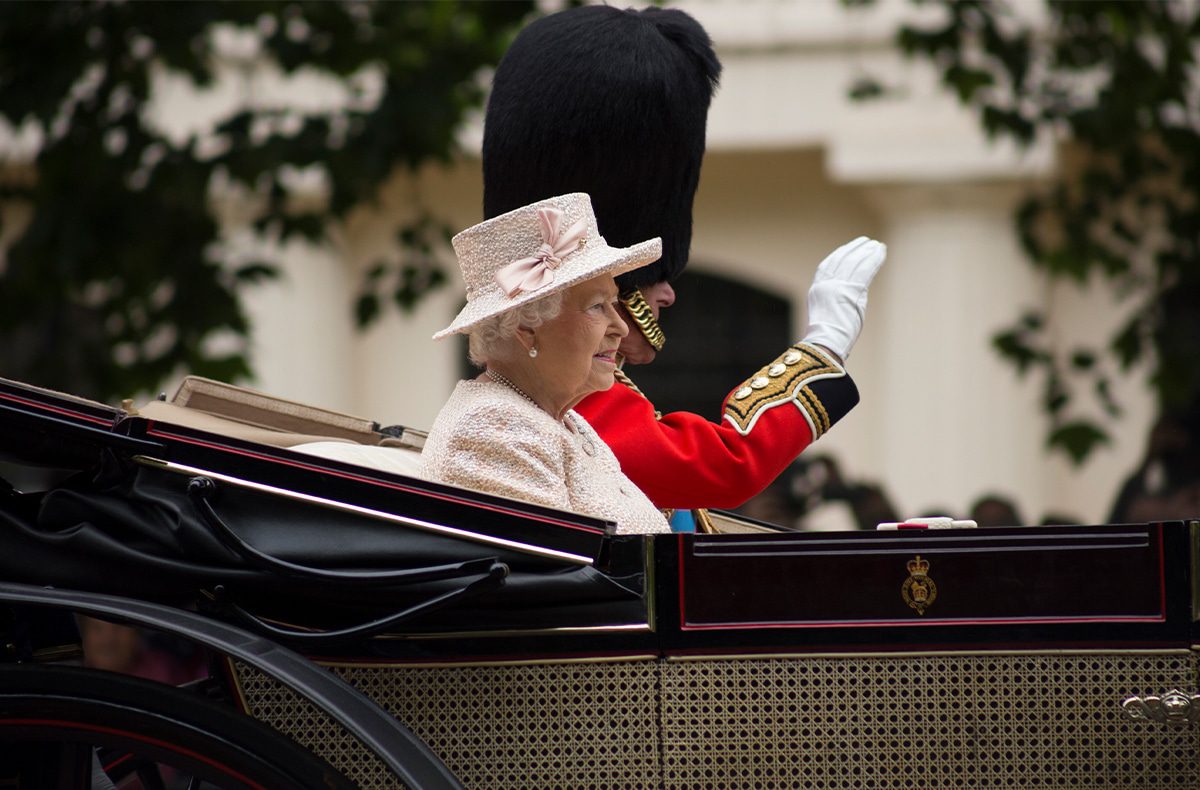
The morning after the death of Queen Elizabeth II, I attended a funeral in the East London neighbourhood where I grew up.
A close friend’s mum had also passed away and, while it was a sombre occasion, the gathering afterwards gave old school friends a chance to catch up. I rarely return to the area, a blue-collar town that relied on jobs at the local Ford factory for decades. So that day, some of us saw each other for the first time in thirty years.
But as we chatted over pints of Guinness and gassy lager in the pub after a moving service, it occurred to me that nobody mentioned the epoch-changing event of the previous day, which had sent some parts of Britain and the wider world into a mournful and tearful tailspin. The vicar hadn’t even mentioned it in the chapel!
And I felt proud of that fact.
Not because I’m some fundamentalist anti-royalist or hated the Queen—although, philosophically, I am a republican. But because I found it refreshingly honest. My friends are an educated bunch and have done well for themselves despite attending one of London’s “sink” schools. So “the great unspoken” that day was not borne of ignorance.
You see, not everybody in the UK fell into a pit of emotional despair upon news of Elizabeth’s death. She, and the wider royal family, meant little to a large proportion of Brits in the Twenty-First Century who now view royalty as a quirky anachronism. Where I grew up, members of the royal family are not aggressively criticised. But neither are they lauded, admired or sobbed over. They just don’t register very much at all in most people’s daily lives.
In the pub, we had things to discuss which were of far greater importance to us as a group of adults with a long, shared history: families, children, absent friends, wild past events, sex (see previous reference), football, music, politics, work, court cases(!)…the luggage of life’s travels. To many of us, Elizabeth II was merely the UK’s head of state: a vital constitutional role, primarily ceremonial in nature, but of little further interest. The days of instinctive cap-doffing deference to monarchy and broader power have long departed urbane Brits. So, too, has the idea that the UK somehow coalesces around outdated concepts such as “Queen and country.”
Sure, we might still be “subjects” of the sovereign. But in modern Britain, few give a rat’s ass how exactly the complex legal arrangement of monarchy defines what are essentially “citizens” like those born in the US, France or India. We’re not going to overthrow a small family of comically posh folk, born into vast wealth and privilege, just because we’re unhappy with that distinction.
And that is because most Brits remain comfortable with the idea of a (legally) slimmed-down royal family—who can no longer waste the country’s wealth on pointless wars with their equally inbred second cousins in far-flung corners of Europe—retaining their status as providers of the UK’s head of state. Outside of Westminster’s infamous legal “bubble” and the vast trappings of the tourist industry, it is not an important role.
Ask my fellow “subjects” whether, philosophically, they support the idea of a head of state being born into such privilege and most will laugh in your face and confirm “no.” But equally, as a people, we’re not exactly inclined to take up arms or overthrow a system that does us little harm. We’re far more fearful of poor politics, which makes many wary of an elected head of state. Perhaps the UK’s bitter-sweet historical experiment with a republic—under Oliver Cromwell, the man who also wrought devastation upon Ireland—played a crucial role in developing this ambiguous mindset. But therein lies another paradox within the UK’s relationship with monarchy and a key reason republican sentiment doesn’t boil over onto city streets.
Queen Elizabeth II, the 70-year monarch whose death we had not even mentioned the day after she “popped her clogs,” was an excellent head of state. Arguably, she was Britain’s greatest ever public servant.
The deep respect and admiration in which she was held stemmed mainly from her work ethic, unswerving dedication to serving many countries, public commitment to political independence (ahem!) and the fact that she mainly exercised shrewd judgement over eight decades—particularly during a period of “managed decline” as Britain transitioned from the post-War ashes of Empire into a modern democracy.
Lizzie Two may well have been born into exceptional privilege and wealth. But she threw herself into her role as head of state with such selflessness that she served most people’s interests at some point. Some more regularly than others, of course: this is still pompous and class-ridden Britain! But that is what her job required, and she did it very well.
A senior journalist colleague—another vehement republican—once remarked that Lizzie was so successful and admired that if the UK’s head of state was an elected post in a republic, and she stood in the ballot, she would win a landslide so large it would look suspicious. I wanted to disagree, but couldn’t.
The absence of widespread republican sentiment in Britain today can, in large part, be attributed to Elizabeth’s professional success. Had she been a clumsy, distant and interfering monarch who scoffed “let them eat cake,” then my friends would have physically challenged the idea of a head of state defined by birthright.
Instead, Elizabeth was damn good at her job—it’s just that, for many, it was only her job. Such that a bunch of old fart republicans in an East London pub didn’t even whisper her name, for good or bad, when we gathered following her sad death. The stability she provided helped the UK and its diversity of peoples go about their daily business. Despite everything else you will hear during the prolonged and exaggerated period of mourning on this side of The Pond, that is her grassroots legacy.
Take note, Charlie Three.


